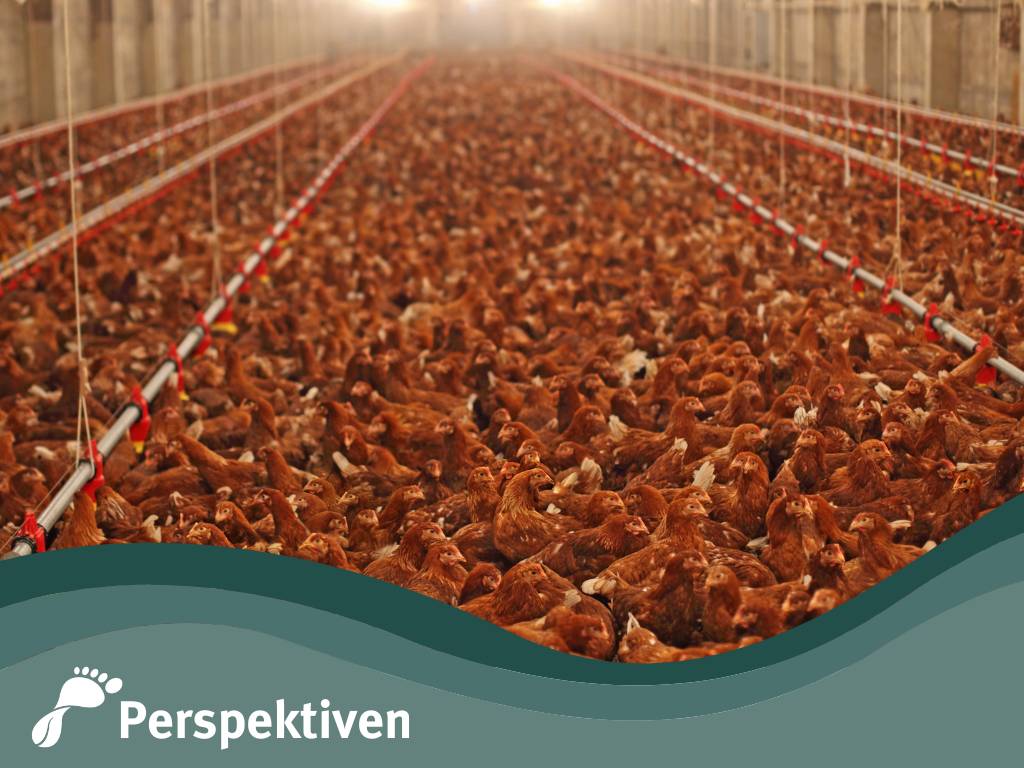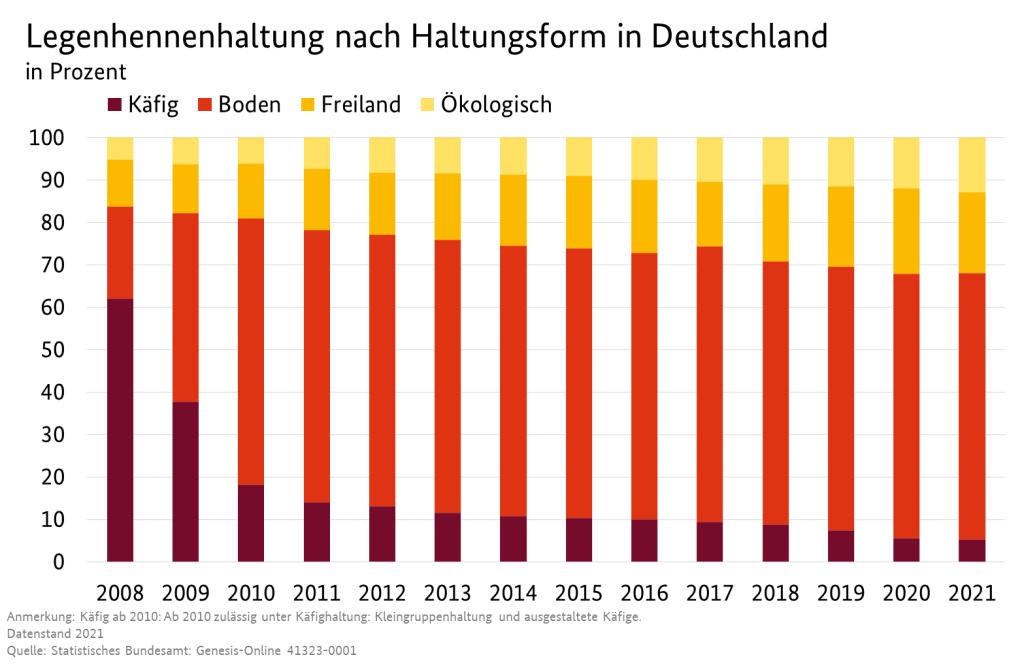Animal welfare on the festive table: eggs

EGGS
Alongside Easter, Christmas baking is one of the highlights of annual egg consumption. Here are a few figures to illustrate the order of magnitude:
There are around 49.6 million laying hens in Germany, over 40% of which live on huge farms with over 100,000 hens per farm. These produced over 15.6 billion eggs in 2021 (14.5 billion table eggs, 1.1 billion hatching eggs). According to the Federal Statistical Office, an additional one billion eggs were imported (mainly from the Netherlands). Per capita consumption in 2021 was 175 eggs.
In Austria, there are 7.1 million laying hens and a consumption of around 2 billion eggs, 86% of which come from domestic production and 14% are imported.
The breakdown of the various laying methods in Germany is as follows:

After cage farming was banned, barn farming is the predominant form of husbandry with around 63% - in Austria it was 61%. Each chicken has 750 cm2 at its disposal, with nine chickens living on one square meter in large halls. This type of husbandry is problematic for the animals in many respects because it is in no way species-appropriate.
Free-range farming has increased continuously in recent years. Here, the chickens also have access to the outdoors of at least 8m2 per chicken. In 2021, however, the proportion of this type of husbandry fell to 19%, compared to 26.5% in Austria.
Organic egg production is also on the upswing. In organic farming, a maximum of seven hens may be kept per square meter of barn, whereby one third of the barn area must be a littered scratching area. Prophylactic use of medication is prohibited. In 2021, 13% of all German hens and 11.9% of all Austrian hens were kept on organic farms.
Wild form versus breeding
The wild hen lays around 30-40 eggs a year. Farmed laying hens lay between 294 (organic farming) and 304 (barn farming). In other words, ten times as many! They have been turned into egg-laying machines that are killed after one to one and a half years as production declines. Massively. And processed into soup chickens and the like. In comparison, a wild chicken has a life expectancy of up to ten years.
Anyone who has ever rescued a laying hen from premature death knows how far removed from the species they have lived. They first have to learn all the normal behaviours of the species because they had no opportunity to do so in industrialized factory farming.
The living egg-laying machines
Most laying hens live in unworthy conditions. The biggest problems include
- Behavioral disorders such as feather pecking and cannibalism due to lack of space and too large groups, the stress can lead to death
- Natural behaviors such as scratching, scratching, pecking and foraging can only take place to a limited extent or not at all
- If the indoor and outdoor areas are not sufficiently varied and hygienic, the animals will develop mental and physical illnesses
- The larger the sheds, i.e. the number of chickens kept at the same time, the more problematic the husbandry
- The production of huge eggs causes great pain and injury to the animals
- In many cases, the highly sensitive beaks of young hens are trimmed without anesthesia
- Whole egg powder and eggs are still being imported from countries where cage farming, which is banned in Germany, is permitted
Cooking and baking without animal suffering
Perhaps there is a farm near you with happy free-range chickens. Or you can keep your own chickens in a species-appropriate way. However, they will also lay far fewer eggs ... .
Eggs are used in many products such as pasta, baked goods, etc. You can choose egg-free alternatives because these eggs usually do not come from sustainable farms.
When baking and cooking yourself, you can already find egg substitutes in supermarkets, such as MyEy, but also with soy flour, linseed, tofu, bananas and apple sauce.
Our pro.earth.conclusion:
I can only repeat what my colleague already wrote about milk: "Just writing about such conditions is staggering. You can't be further removed from the idyllic alpine pastures propagated in advertising. Let's stop being so misled and soothing our consciences on this manipulative level - these images have absolutely nothing to do with reality."
Let's look for alternatives when shopping and invest more time and money in valuable food! 💚






